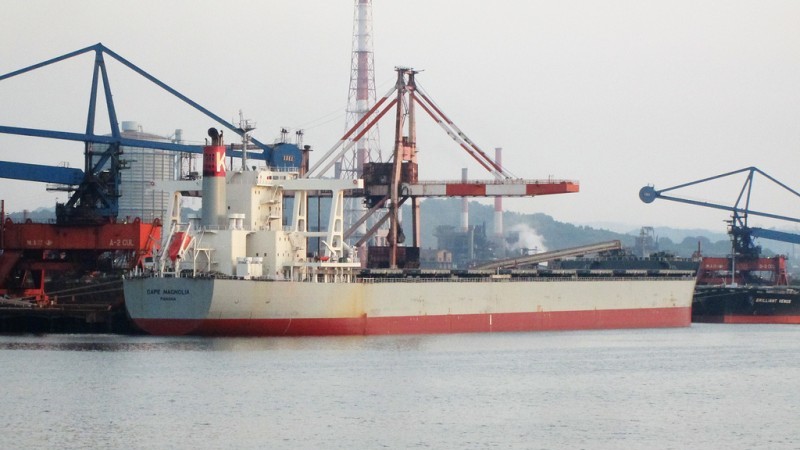Efficient ships can save millions of dollars in fuel costs, but their owners see little of the benefit.
That is the conclusion of analysis from UCL and Carbon War Room, based on a decade’s worth of shipping data.
It means ship owners are not rewarded for investment in clean technology, researchers warn, holding back climate action in maritime transport.
“These results are a challenge to the industry, to its business model,” said co-author James Mitchell, from Carbon War Room.
“Transparent data on operational efficiency would also help rebalance the power dynamic in negotiations, allowing all parties to profit from efficiency.”
Weekly briefing: Sign up for your essential climate politics update
In 2012, a B-rated “Capesize” ship (dry bulk carrier too big for the Panama Canal) saved some US$1.5m on fuel compared to its F-rated equivalent.
Yet in the time charter market, the cargo owner – who hires the vessel for a period and pays the fuel bill – reaped all the savings. The owner earned no premium.
In the smaller Panamax category, there was some benefit-sharing. The owner of a vessel rated A-C commanded 2% higher rates than for a D-G class.
Still, Mitchell noted the efficiency premium collapsed with the 2008 financial crash, despite high fuel costs at the time.
Shipping accounts for 2-3% of global greenhouse gas emissions, but is not explicitly covered by the Paris climate agreement.
Its emissions are set to grow 50-250% by 2050 without intervention, according to analysis commissioned by the International Maritime Organization (IMO), responsible for regulating the sector.
To date, the IMO has focused its efforts on collecting ship fuel use data and rejected calls to develop a carbon target for the sector.
It is under increasing pressure to tackle its climate impact, said co-author Tristan Smith of UCL. “However, this research demonstrates that market failures present significant challenges to realising emission reductions.”
Policies in other sectors like carbon pricing or fuel levies work by amplifying the existing rewards for efficiency, he explained. That won’t work for shipping while the gains are so lopsided.
Banks can help by channeling money towards cleaner vessels, said Mark Clintworth, head of shipping at the European Investment Bank.
“Financiers are in a key position to reshape the makeup of the global shipping fleet through their investment decisions today and in the future.”
